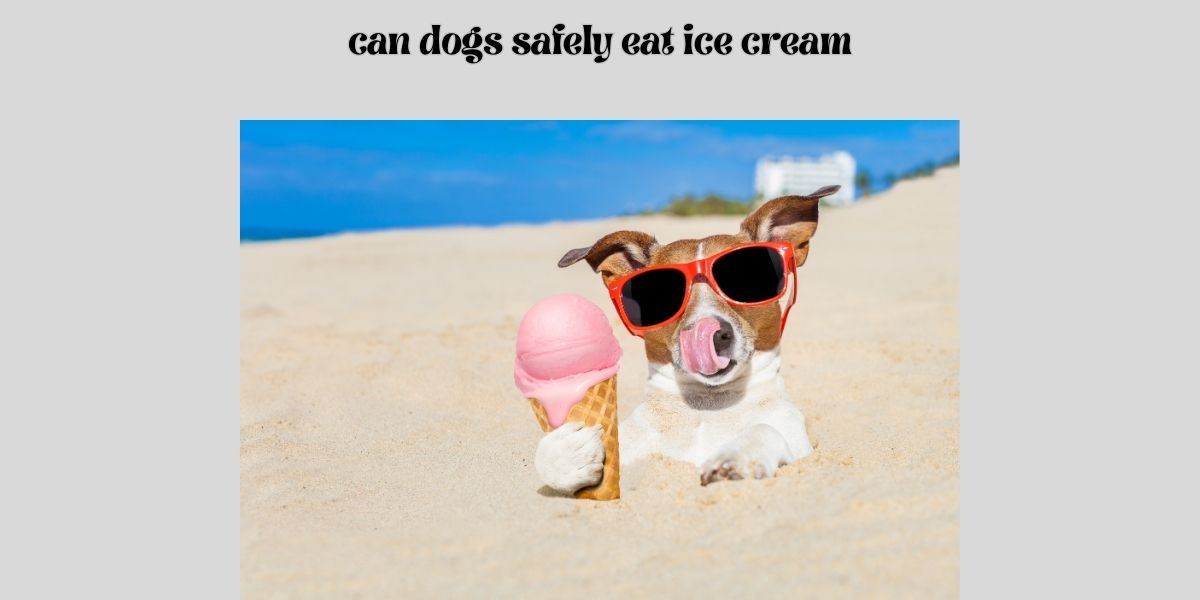Can Dogs Safely Eat Ice Cream

Are you curious about whether dogs can safely indulge in a sweet treat like ice cream? While it may be tempting to share your frozen delight with your furry friend on a hot summer day, it is essential to consider the potential risks involved. In this article, we will explore the topic of whether dogs can safely consume ice cream and provide you with valuable insights to help you make informed decisions about your dog’s diet.
Can Dogs Safely Eat Ice Cream
Introduction
You may have noticed that your furry friend has an interest in your ice cream cone and wondered if it is safe to share a scoop with them. While it may be tempting to treat your dog to a sweet, creamy dessert, it is important to consider the potential risks and drawbacks of feeding ice cream to dogs. In this article, we will explore the various types of ice cream, the concerns associated with dogs consuming it, and discover safe alternatives to satisfy your pup’s sweet tooth.
Types of Ice Cream
Ice cream comes in endless flavors and variations, from classic vanilla and chocolate to more exotic blends like mint chocolate chip or cookies and cream. However, most commercially available ice creams contain ingredients that are not suitable for canine consumption. This is due to the presence of additives, artificial sweeteners, and potentially toxic ingredients, such as chocolate. It is crucial to consider these factors before sharing your frozen treat with your four-legged companion.

Concerns with Dogs Consuming Ice Cream
While it can seem harmless to share a small amount of ice cream with your dog, there are several potential concerns to be aware of. These include lactose intolerance, digestive upset, obesity and weight gain, artificial sweeteners, and toxic ingredients like chocolate.
Lactose Intolerance
Just like humans, some dogs may be lactose intolerant. Lactose is the sugar found in milk and dairy products. Dogs that lack the enzyme lactase, which is responsible for breaking down lactose, can experience gastrointestinal issues such as diarrhea, vomiting, and abdominal discomfort if they consume foods containing lactose. As ice cream is typically made from dairy, it may pose a risk to dogs with lactose intolerance.

Digestive Upset
Even if your pup doesn’t have lactose intolerance, consuming ice cream can still cause digestive upset. This is because ice cream is high in fat, which can be difficult for dogs to digest. Feeding your dog food that is high in fat regularly can lead to vomiting, diarrhea, and other gastrointestinal issues. It is important to consider your pet’s digestive system and overall health before offering them a scoop of ice cream.
Obesity and Weight Gain
Obesity is a growing concern among dogs, just as it is in humans. Feeding your dog excessive amounts of ice cream or regular servings of ice cream can contribute to weight gain and obesity. The high fat and sugar content in ice cream can lead to unnecessary calorie intake and can negatively impact your dog’s overall health. It is crucial to monitor your dog’s diet and provide balanced meals and treats that are appropriate for their age, size, and activity level.

Artificial Sweeteners
Many ice creams contain artificial sweeteners like xylitol, which can be highly toxic to dogs. Xylitol is a sugar substitute that is safe for humans but can cause a dangerous drop in blood sugar levels and liver damage in dogs. Even small amounts of xylitol can have severe consequences for your furry friend. Therefore, always read the ingredient labels carefully and avoid feeding ice cream that contains artificial sweeteners or other harmful additives.
Chocolate and Other Toxic Ingredients
Chocolate is another primary concern when it comes to sharing ice cream with dogs. Most ice creams contain at least a small amount of chocolate, which contains theobromine and caffeine. These substances are toxic to dogs and can lead to symptoms such as increased heart rate, tremors, seizures, and, in severe cases, even death. It is important to remember that different types of chocolate, such as dark chocolate or cocoa powder, contain higher levels of theobromine and are even more dangerous for dogs. To ensure your pet’s safety, it is best to avoid feeding them any ice cream that contains chocolate or other potentially toxic ingredients.
Serving Size and Frequency
Suppose you decide to share a small amount of ice cream with your pup despite the potential risks. In that case, it is essential to consider the serving size and frequency. Moderation is key when it comes to treating your dog with ice cream. A small lick or a few bites once in a while may not cause significant harm, but it is crucial not to make it a regular occurrence. Be mindful of portion sizes and remember that dogs have different nutritional needs than humans.
Safe Alternatives to Ice Cream
Fortunately, there are safe and delicious alternatives to traditional ice cream that you can share with your furry friend. Many pet stores offer specially formulated dog-friendly frozen treats, often referred to as “dog ice cream” or “pupsicles.” These frozen treats are designed to be nutritionally balanced and safe for canine consumption. Additionally, you can make your own dog-friendly frozen treats using ingredients like plain yogurt, peanut butter, and pieces of dog-safe fruits, such as bananas or strawberries. These homemade treats can be a healthier and safer alternative to satisfy your pup’s cravings for a cold, sweet delight.
Conclusion
While it may be tempting to share your ice cream with your furry friend, it is crucial to prioritize their health and well-being. Dogs can experience various issues, such as lactose intolerance, digestive upset, obesity, and exposure to artificial sweeteners and toxic ingredients, when consuming ice cream. Always consider the potential risks and opt for safer alternatives specifically designed for dogs. By being mindful of your pet’s diet and providing them with suitable treats, you can ensure their happiness and health for years to come.